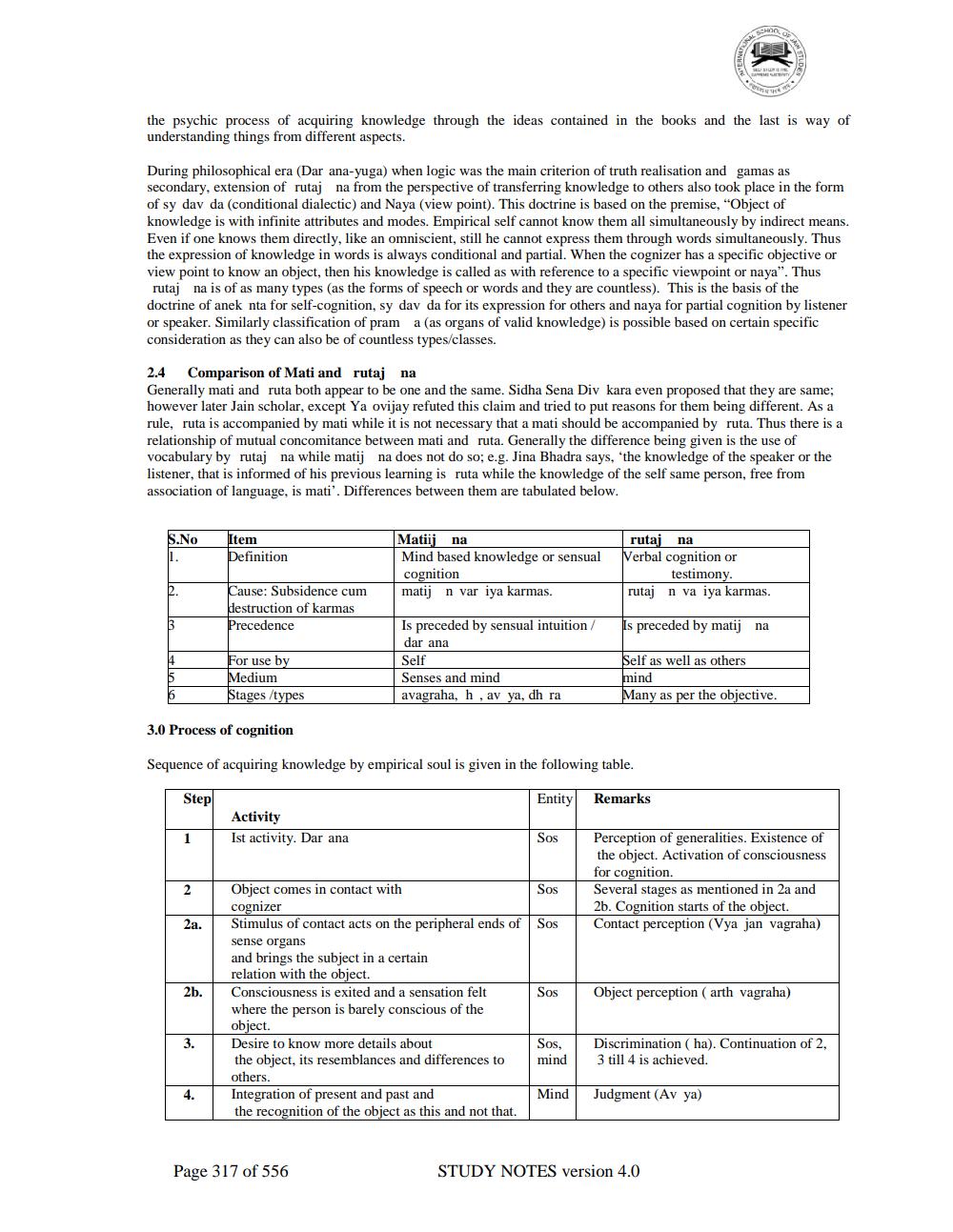________________
the psychic process of acquiring knowledge through the ideas contained in the books and the last is way of understanding things from different aspects.
During philosophical era (Dar ana-yuga) when logic was the main criterion of truth realisation and gamas as secondary, extension of rutaj na from the perspective of transferring knowledge to others also took place in the form of sy dav da (conditional dialectic) and Naya (view point). This doctrine is based on the premise, "Object of knowledge is with infinite attributes and modes. Empirical self cannot know them all simultaneously by indirect means. Even if one knows them directly, like an omniscient, still he cannot express them through words simultaneously. Thus the expression of knowledge in words is always conditional and partial. When the cognizer has a specific objective or view point to know an object, then his knowledge is called as with reference to a specific viewpoint or naya". Thus
rutaj na is of as many types (as the forms of speech or words and they are countless). This is the basis of the doctrine of anek nta for self-cognition, sy dav da for its expression for others and naya for partial cognition by listener or speaker. Similarly classification of pram a (as organs of valid knowledge) is possible based on certain specific consideration as they can also be of countless types/classes.
2.4 Comparison of Mati and rutaj na Generally mati and ruta both appear to be one and the same. Sidha Sena Div kara even proposed that they are same; however later Jain scholar, except Ya ovijay refuted this claim and tried to put reasons for them being different. As a rule, ruta is accompanied by mati while it is not necessary that a mati should be accompanied by ruta. Thus there is a relationship of mutual concomitance between mati and ruta. Generally the difference being given is the use of vocabulary by rutaj na while matij na does not do so, e.g. Jina Bhadra says, 'the knowledge of the speaker or the listener, that is informed of his previous learning is ruta while the knowledge of the self same person, free from association of language, is mati'. Differences between them are tabulated below.
S.No
Item Definition
Matiij na Mind based knowledge or sensual cognition matij n var iya karmas.
rutaj na Verbal cognition or
testimony. rutaj n va iya karmas.
Cause: Subsidence cum destruction of karmas Precedence
Is preceded by matij na
For use by Medium Stages /types
Is preceded by sensual intuition / dar ana Self Senses and mind avagraha, h , av ya, dh ra
Self as well as others mind Many as per the objective.
3.0 Process of cognition
Sequence of acquiring knowledge by empirical soul is given in the following table.
Step
Entity
Remarks
Activity Ist activity. Dar ana
Sos
Perception of generalities. Existence of the object. Activation of consciousness for cognition. Several stages as mentioned in 2a and 2b. Cognition starts of the object. Contact perception (Vya jan vagraha)
Object comes in contact with
Sos cognizer Stimulus of contact acts on the peripheral ends of Sos sense organs and brings the subject in a certain relation with the object. Consciousness is exited and a sensation felt where the person is barely conscious of the object. Desire to know more details about
Sos, the object, its resemblances and differences to others. Integration of present and past and
Mind the recognition of the object as this and not that.
Object perception (arth vagraha)
Discrimination (ha). Continuation of 2, 3 till 4 is achieved.
mind
Judgment (Av ya)
Page 317 of 556
STUDY NOTES version 4.0




